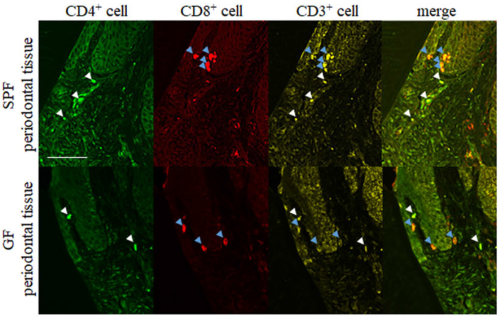Okayama University research: Insights into mechanisms governing the resistance to the anti-cancer medication cetuximab
NewsPosted by: Dental Design 26th November 2018

|
Researchers at Okayama University report in the Journal of Periodontology that the presence of commensal flora in the mouth may play a key role in the functioning of the immune system against periodontal infections. The development of an animal’s immune system relies on commensal flora — microorganisms such as bacteria present in certain parts of the body. In the case of immunity against periodontal diseases — infections of the areas surrounding teeth — it is unclear, however, what exactly the role of commensal flora is. Now, Professor Manabu Morita from Okayama University and colleagues have investigated the relation between commensal flora in the mouth and the immune response to a bacterium called Porphyromonas gingivalis (P. gingivalis), which contains lipopolysaccharide (LPS), a known periodontal pathogen. The researchers tested the immune response of mice after the application of P. gingivalis/LPS. Two types of mouse were used in the experiments: germ-free and specific-pathogen-free mice. The former are free of any microorganisms, including commensal flora; the latter are mice guaranteed to be free of certain pathogens — in this case, periodontal pathogens — but not of commensal flora. The response to the bacterium was assessed by the amounts of particular types of cells that are characteristic of immune system activation. Four groups of mice were monitored: a ‘baseline’ group not exposed to P. gingivalis and three groups to which the bacterium was applied; each of the three groups was then examined at different points in time after the application of LPS. The scientists observed that exposure to P. gingivalis led to an increase in the number of a certain type of cell associated with immune system activity in the specific-pathogen-free mice, after 3 hours, indicating that application of the bacterium indeed triggered the immune system. At the same time, the germ-free mice did not show similar increased levels of these cells, suggesting that commensal flora contribute to the development and functioning of the periodontal immune system. Professor Morita and colleagues are aware of the limitations of their study. They did not, for example, investigate the effect of repeatedly applying LPS. They also acknowledge that only a limited set of cell types characteristic of immune system activity was monitored. Therefore, the scientists concluded that “[the] results, though suggestive, should be interpreted with caution.” |








